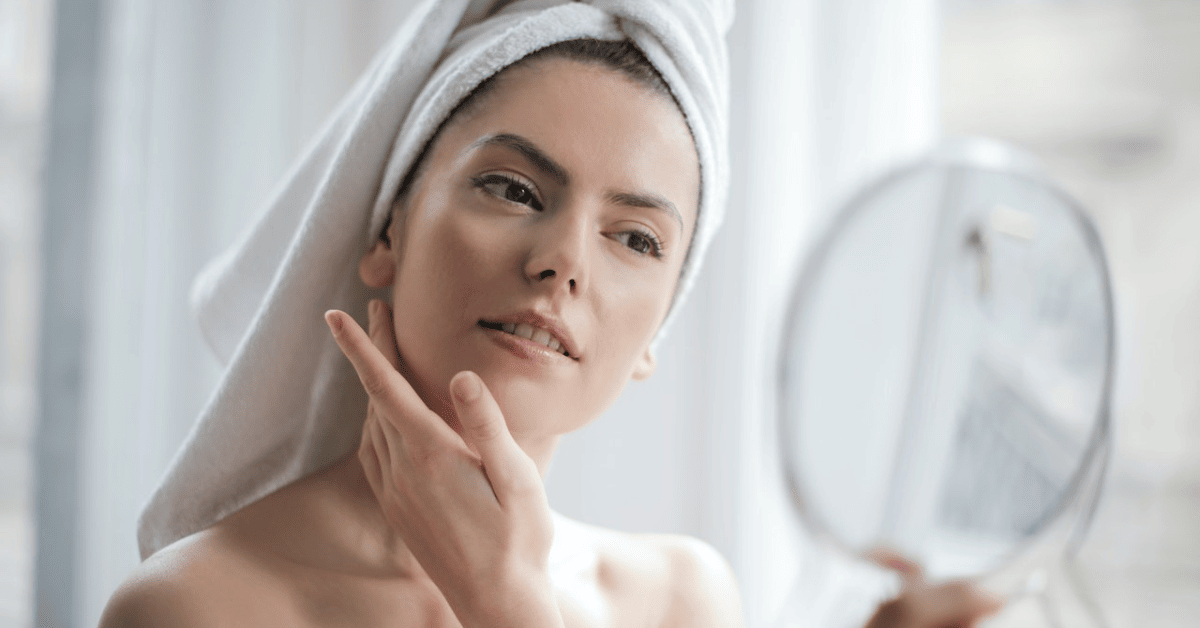A little itch here and there is nothing to worry about. Our skin is sensitive to all sorts of stimuli. But when you find yourself scratching the same skin area to the point it becomes red or irritated, there may be cause for investigation. Whether you have dry skin and itchy sensations, or symptoms of an underlying skin condition that could benefit from targeted treatment, the best thing you can do is address your skin woes sooner rather than later.
When it comes to itchy skin, it can be difficult to pinpoint whether you’re experiencing dry skin or eczema. That is unless you know exactly what to look for. Let’s explore the differences between these two skin conditions.
What is Dry Skin?
This may sound like a no-brainer, but dry skin occurs when your skin lacks moisture to keep it supple and nourished. Some people experience dry skin seasonally, particularly in the colder months when the atmosphere lacks humidity. Other people may experience dry skin due to dehydration. That’s right; your skin can dry out if you don’t drink enough water. Another factor to consider is aging. Since our bodies undergo a myriad of changes as we age, it is no wonder that our skin can get thinner and drier as we get older.
The main symptoms of dry skin include itching, cracks in the skin that may cause bleeding, skin that feels rough like sandpaper, unnaturally tight or taut, and skin that appears red or even grey. The good news is that there are easy remedies to combat dry skin.
Treating Dry Skin
Moisture is your skin’s best friend. Therefore, when choosing the best dry skin lotion, look for natural ingredients when you look at the labels. You also want to choose products that contain ingredients such as glycerol, urea, and lactic acid. Hyaluronic acid is another great weapon to add to your dry skin treatment toolkit. Hyaluronic acid can hold a thousand times its weight in water to retain moisture and prevent your skin’s moisture from evaporating back into the air. When our skin is not adequately hydrated, it can develop wrinkles, fine lines, loose skin, and appear translucent due to thinning tissues. Hydrated skin is firm, plump, and vibrant. This is why proper moisturization and hydration are essential for optimal skin health.
In addition to daily moisturizers and add-ons to your skincare routine, consider investing in a humidifier to keep some moisture in the air. You can place your humidifier in the area of your home you spend the most time and use it during the colder months when the air is drier.
Take a look at the soaps and cleansers you are using. Harsh soaps have a bad habit of drying out your skin. Also, be sure to dry your skin thoroughly before exposing it to cold environments. This is especially important when washing your hands in the winter.
When showering or bathing, use lukewarm water as much as possible. You would think a steamy hot shower would help moisturize your skin, but hot showers have the opposite effect and can dry your skin even more.
What is Eczema?
Eczema can mock symptoms of dry skin; however, there is more to the skin’s irritation than meets the eye. Eczema, also known as atopic dermatitis, occurs when your skin’s defense barriers are not working as well as they should. This can cause itchy, flaky, and red irritated patches of skin. While eczema may occur anywhere on the body, it is commonly found in the crease of your elbow or the back of your knee. Eczema will get worse if not treated, whereas dry skin may eventually heal on its own.
Common eczema triggers include stress, environmental free radicals, allergens including animal dander, rough or scratchy fabrics like wool, heat, food allergens including wheat, soy, dairy, or nuts, and harsh soaps.
Different Types of Eczema
Several types of eczema can give you dry skin and itchy symptoms:
Dyshidrotic eczema – While the name is a mouthful, this type of eczema can cause itchy blisters on your hands and feet.
Static dermatitis – Since eczema occurs when your skin’s defense barriers are weakened, this type of eczema occurs due to inadequate blood circulation in the lower extremities. It requires long-term treatment since it can lead to infection skin of the lower legs.
Atopic eczema – If you have eczema flare-ups that occur every so often, you may have atopic eczema. This type of eczema starts when you’re younger and can cause symptoms wherever the skin folds. Typically, you will see irritated skin behind the knees, in the crease of the elbow, around your neck, and even on your wrists.
Nummular eczema – This type of eczema causes increasingly itching patches to form. These patches tend to be circular and can leak fluids.
Treating Eczema
If you do not treat eczema, it will only get worse. Therefore, correct diagnosis and treatment are paramount to relieving your symptoms and restoring your skin to a healthy and protective state. You may want to speak with your doctor or dermatologist to determine the best treatment option for you, but some other ways to treat eczema include:
- Natural oil-based moisturizers have anti-inflammatory properties. This can help ease your eczema symptoms and allow your skin to repair its protective barrier.
- Over-the-counter hydrocortisone creams and topical steroids can combat inflammation.
- If your symptoms are too much or treatment at home doesn’t seem to remedy your condition, it may be time to discuss additional treatment options with your doctor.
Dry Skin vs. Eczema: Spotting the Differences
Sometimes the terms dry skin and eczema are used interchangeably. However, they are not the same thing. When determining if you’re experiencing dry skin or eczema, keep your eye on these differentiators.
You May Have Dry Skin If:
- You spend excess time in cold weather.
- Your skin feels taut and rough to the touch, like sandpaper.
- Your skin is sore, similar to how you feel when your lips are chapped.
- You’ve been skimping on your moisturizer.
- Your skin is flaky.
- Your symptoms occur anywhere on the body.
You May Have Eczema If:
- You have pre-existing conditions such as allergies and asthma.
- You have a genetic predisposition to eczema.
- Your itchy areas are localized and do not get better with moisturizers.
- Your skin has bumpy blisters that ooze fluid and form a crust.
- You get scaly patches of skin in your skin folds, including inside the elbows and behind the knees.
While dry skin does not cause eczema, you can have both conditions simultaneously. Dry skin can worsen eczema, so you want to treat it as soon as possible.
Maintaining Your Skin’s Health
As you may know, your skin is your body’s largest organ and plays a pivotal role in your health (and, of course, your appearance). To optimize your skin health, establish a skincare routine you can stick to. This includes cleansers, moisturizers, serums, and SPF sunscreen. There are many products on the market these days. If you aren’t sure where to start, consider booking a comprehensive consultation with First Impressions Rejuvenation Clinic. Our expert team can help you evaluate your skincare goals and recommend the right products and treatments for you.
*****************
Women over 40 may experience a very common and widespread condition: sexual dysfunction. But that doesn’t mean you have to “grin and bear it.” There are many treatments available to enhance sexual wellness at any age. Learn more when you download our FREE ebook, Bring It Out of the Bedroom: Give Your Love Life the Boost You Both Deserve with Save, Proven Treatments for Sexual Rejuvenation.

